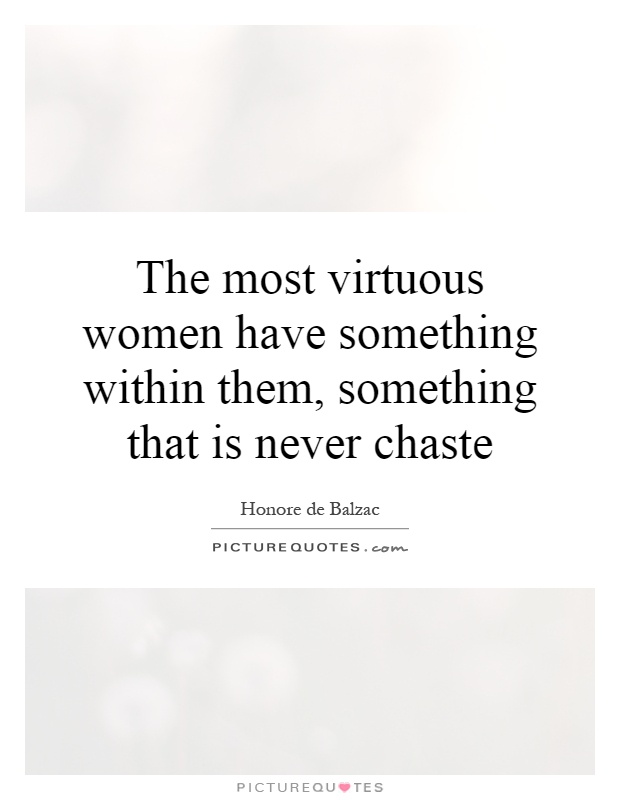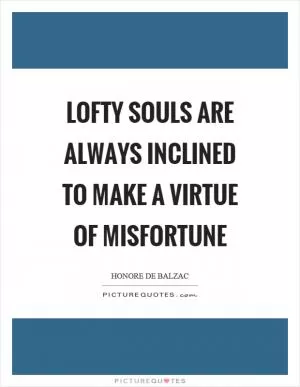The most virtuous women have something within them, something that is never chaste

The most virtuous women have something within them, something that is never chaste
In the works of Honore de Balzac, the idea that the most virtuous women have something within them that is never chaste is a recurring theme that challenges traditional notions of purity and morality. Balzac's female characters are often complex and multi-dimensional, defying societal expectations and norms. They possess a certain inner strength and passion that sets them apart from the conventional idea of chastity.One of Balzac's most famous female characters, Eugenie Grandet from "Eugenie Grandet," exemplifies this idea of virtue not necessarily equating to chastity. Eugenie is portrayed as a virtuous and pure young woman, devoted to her family and loyal to her father. However, beneath her outward appearance of innocence lies a deep well of emotions and desires that are anything but chaste. Eugenie's love for her cousin Charles is passionate and all-consuming, leading her to make choices that go against the expectations of society.
Similarly, in "Lost Illusions," Balzac introduces the character of Lucien de Rubempre's mistress, Esther Gobseck. Esther is a courtesan who is often judged harshly by society for her lack of chastity. However, Balzac portrays her as a complex and sympathetic character, capable of great love and sacrifice. Esther's relationship with Lucien is fraught with passion and intensity, challenging the notion that virtue is synonymous with chastity.
Balzac's exploration of the complexities of female virtue reflects his belief in the inherent contradictions and complexities of human nature. He rejects the simplistic dichotomy of good versus evil, instead portraying his characters as flawed and nuanced individuals who are capable of both virtue and vice. In the world of Balzac's novels, virtue is not defined by outward appearances or adherence to societal norms, but by the inner strength and integrity of the individual.
Overall, Balzac's portrayal of virtuous women as possessing something within them that is never chaste is a powerful and subversive commentary on the limitations of traditional morality. By challenging conventional ideas of purity and virtue, Balzac invites his readers to reconsider their preconceived notions of what it means to be a truly virtuous woman.












 Friendship Quotes
Friendship Quotes Love Quotes
Love Quotes Life Quotes
Life Quotes Funny Quotes
Funny Quotes Motivational Quotes
Motivational Quotes Inspirational Quotes
Inspirational Quotes